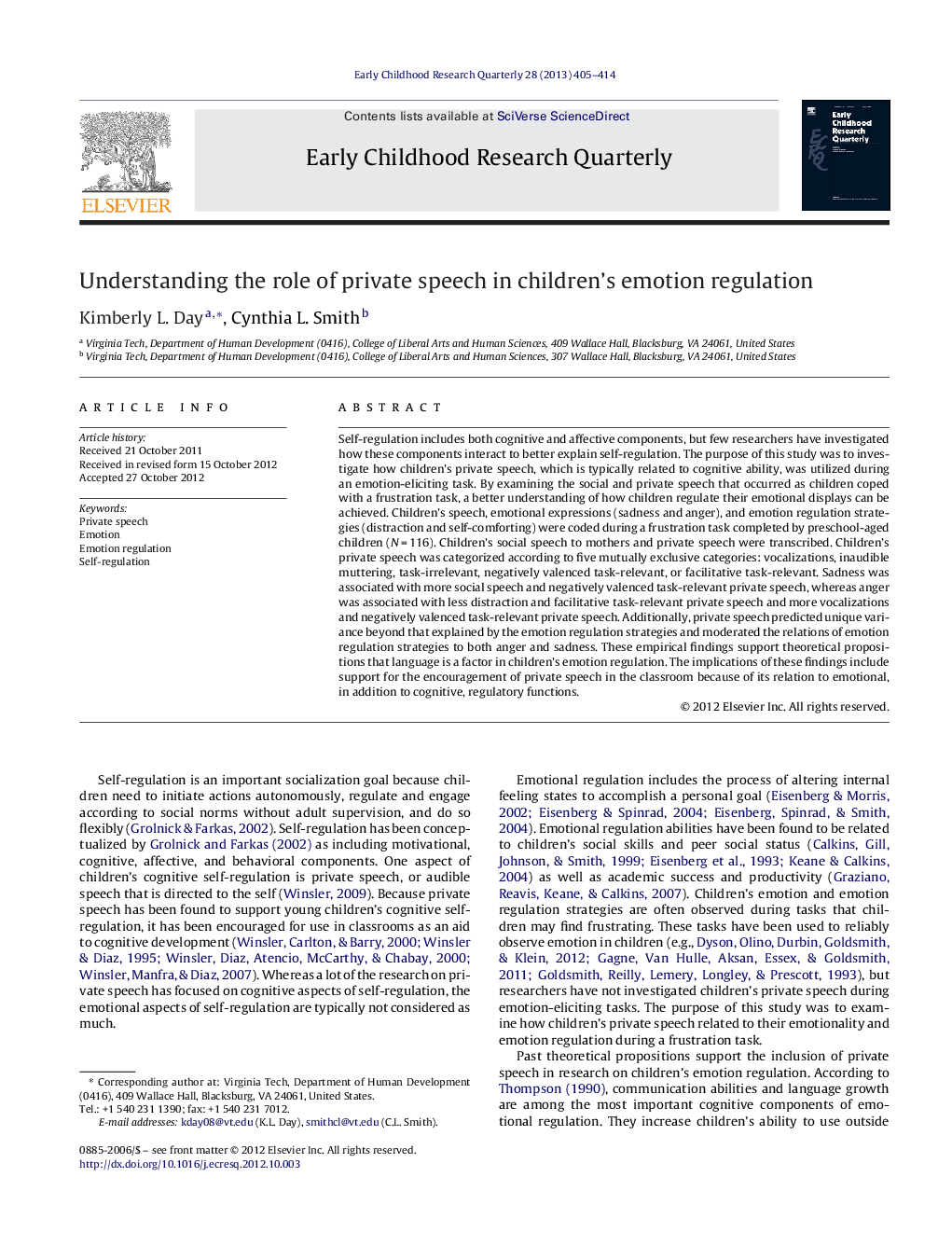| کد مقاله | کد نشریه | سال انتشار | مقاله انگلیسی | نسخه تمام متن |
|---|---|---|---|---|
| 354027 | 618960 | 2013 | 10 صفحه PDF | دانلود رایگان |

Self-regulation includes both cognitive and affective components, but few researchers have investigated how these components interact to better explain self-regulation. The purpose of this study was to investigate how children's private speech, which is typically related to cognitive ability, was utilized during an emotion-eliciting task. By examining the social and private speech that occurred as children coped with a frustration task, a better understanding of how children regulate their emotional displays can be achieved. Children's speech, emotional expressions (sadness and anger), and emotion regulation strategies (distraction and self-comforting) were coded during a frustration task completed by preschool-aged children (N = 116). Children's social speech to mothers and private speech were transcribed. Children's private speech was categorized according to five mutually exclusive categories: vocalizations, inaudible muttering, task-irrelevant, negatively valenced task-relevant, or facilitative task-relevant. Sadness was associated with more social speech and negatively valenced task-relevant private speech, whereas anger was associated with less distraction and facilitative task-relevant private speech and more vocalizations and negatively valenced task-relevant private speech. Additionally, private speech predicted unique variance beyond that explained by the emotion regulation strategies and moderated the relations of emotion regulation strategies to both anger and sadness. These empirical findings support theoretical propositions that language is a factor in children's emotion regulation. The implications of these findings include support for the encouragement of private speech in the classroom because of its relation to emotional, in addition to cognitive, regulatory functions.
► Relations among children's private speech, emotion, and regulation were investigated.
► Anger and sadness were associated with less cognitively beneficial private speech.
► Anger, but not sadness, was associated with less distraction.
► Private speech predicted emotion above and beyond emotion regulation.
► Private speech moderated the relations of emotion regulation strategies to emotion.
► Language is an important factor in cognitive and emotion regulation.
Journal: Early Childhood Research Quarterly - Volume 28, Issue 2, 2nd Quarter 2013, Pages 405–414